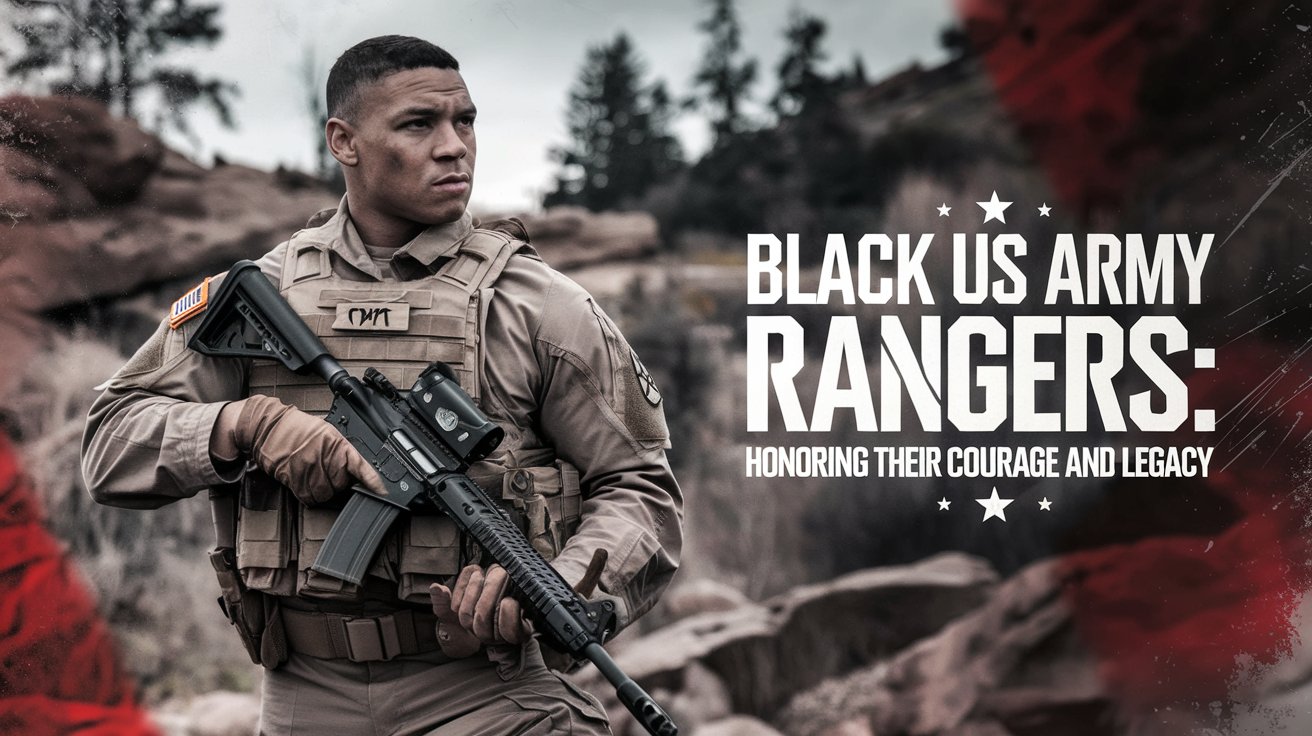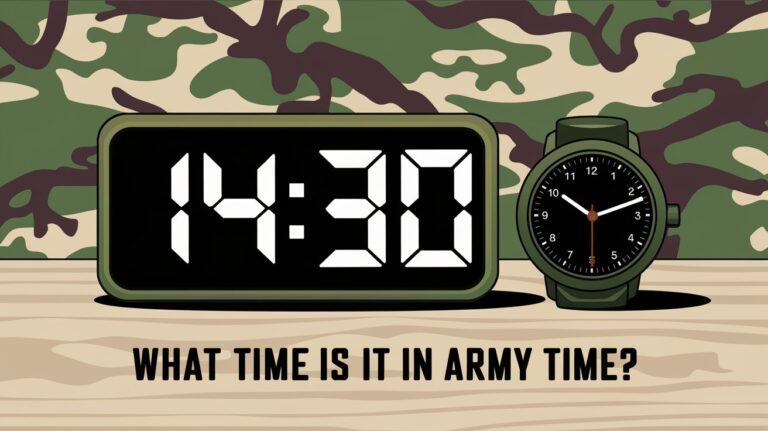Are There Any Black US Army Rangers? A Historical and Modern Perspective

Black US Army Rangers have played a crucial role in American military history, breaking barriers and serving with distinction. Yes, there are Black US Army Rangers, and their legacy stretches back to the Korean War era. This article explores the rich history of Black Rangers, from the pioneering 2nd Ranger Infantry Company (Airborne) to today’s diverse 75th Ranger Regiment.
The Pioneering 2nd Ranger Infantry Company (Airborne)
Formation and Activation
The story of Black US Army Rangers begins with the 2nd Ranger Infantry Company (Airborne). Formed in 1950, this unit marked a significant milestone in military history. It was the first and only all-Black Ranger unit in the US Army.
The company’s activation on October 9, 1950, came at a critical time. The Korean War had just begun, and the military needed skilled soldiers. Despite ongoing racial tensions, these men stepped up to serve their country.
Training and Preparation
Training for the 2nd Ranger Company was intense. These soldiers were already tough – many came from airborne units. But Ranger training pushed them even harder.
Herc Dias, a veteran of the unit, recalls, “We trained like hell. He trained us twice as hard as our brother white rangers because failure was not an option.”
This rigorous preparation took place at Fort Benning, Georgia. The men honed their skills in combat tactics, survival, and airborne operations. They were becoming elite soldiers, ready for the challenges ahead.
Deployment to Korea
In December 1950, the 2nd Ranger Company landed in Korea. They joined the fight as part of the 7th Infantry Division. The harsh Korean winter greeted them with sub-zero temperatures and deep snow.
Despite these challenges, the Rangers were eager to prove themselves. They were about to face their first real test in combat.
Combat Operations and Achievements
Major Battles and Engagements
The Black Rangers of the 2nd Company quickly found themselves in the thick of the action. They fought in several key battles, including:
- The Battle of Tanyang
- Engagements near Changnim-ni
- Operations around Andong
- The fight at Majori-ri
These battles tested the Rangers’ skills and resolve. They faced not only enemy forces but also brutal weather conditions and limited supplies.
One veteran described their experiences: “We’d go out on patrols and we’d burn everything we saw. Every night, we had guys guarding the railroad station and my squad, we were guarding the MSR (main supply route).”
Operation TOMAHAWK: A Historic Airborne Assault
On March 23, 1951, the 2nd Ranger Company made history again. They participated in Operation TOMAHAWK, becoming the first Rangers ever to jump into combat.
The mission was risky. They had to parachute deep into enemy territory near Munsan-ni. Despite the dangers, the Rangers performed admirably. Their actions contributed significantly to the operation’s success.
Herc Dias remembers the moment vividly: “The day we were getting out of the plane to make this combat jump our XO says ‘Today, you’re making history.’ I’m part of that. I feel honored.”
Awards and Decorations
The 2nd Ranger Company’s bravery didn’t go unnoticed. They earned several awards for their service in Korea:
- Four campaign streamers
- Nine Silver Star Medals
- Eleven Bronze Star Medals
- 103 Purple Heart Medals
These decorations reflect the unit’s courage and sacrifice. They faced fierce combat and suffered significant casualties, yet they persevered.
Challenges Faced by Black Rangers
Racial Discrimination and Segregation
Despite their valor, Black Rangers faced ongoing discrimination. The military had officially desegregated in 1948, but change came slowly.
Many Black soldiers felt they were fighting two wars – one against the enemy and another against racism at home. The 2nd Ranger Company operated in this challenging environment.
Overcoming Adversity in Combat
In the face of prejudice, the Black Rangers excelled. They proved their worth through their actions on the battlefield.
Lieutenant Colonel Victor J. Bond noted in a 2003 thesis that the 2nd Ranger Company’s performance was exemplary, despite racial discrimination. Their cohesion and exceptional soldiering spoke volumes.
The Dissolution of the 2nd Ranger Company and Its Aftermath
The 2nd Ranger Infantry Company’s service was brief but impactful. The unit was deactivated in August 1951, after just 11 months.
Many of its members transferred to other units, like the 187th Airborne Regimental Combat Team. Though short-lived, the company left an indelible mark on military history.
Integration and the Evolution of Black Rangers in the US Army
The Post-Korean War Era
After the 2nd Ranger Company’s dissolution, integration in the Army continued. Black soldiers served in various Ranger units, though not in segregated companies.
The experiences of the 2nd Ranger Company paved the way for future generations. Their success showed that skin color didn’t determine a soldier’s worth or ability.
Vietnam and Beyond
During the Vietnam War, Black Rangers served alongside their white counterparts in integrated units. They continued to distinguish themselves in combat.
As the decades passed, more Black soldiers joined the Rangers. They served in conflicts around the world, from Grenada to the Middle East.
Modern Day: Black Rangers in the 75th Ranger Regiment
Representation and Diversity
Today, Black Rangers serve proudly in the 75th Ranger Regiment. This elite unit represents the modern face of the US Army Rangers.
The exact percentage of Black Rangers isn’t publicly available. However, the Army has made strides in increasing diversity across all its ranks and units.
Notable Black Rangers and Their Contributions
Many Black Rangers have made significant contributions to the force. While specific names are often kept private due to the nature of their work, their impact is undeniable.
These soldiers continue the legacy started by the 2nd Ranger Company. They serve as role models for aspiring Rangers of all backgrounds.
The Impact and Legacy of Black Rangers
Influencing Military Integration
The service of Black Rangers, especially the 2nd Ranger Company, played a crucial role in military integration. Their success challenged racial stereotypes and proved the value of diversity in the armed forces.
This legacy extends beyond the Rangers. It helped shape the modern, integrated US military we see today.
Inspiring Future Generations
The story of Black US Army Rangers continues to inspire. It shows that determination and skill can overcome societal barriers.
Young Black Americans looking to serve their country can look to this history with pride. They see a path forged by brave men who faced incredible odds.
Conclusion
The question “Are there any Black US Army Rangers?” has a resounding answer: yes, there are, and there have been for decades. From the groundbreaking 2nd Ranger Infantry Company to today’s integrated 75th Ranger Regiment, Black Rangers have left an indelible mark on US military history.
These soldiers faced daunting challenges both on and off the battlefield. They fought against enemy forces and racial prejudice. Through it all, they served with distinction, breaking barriers and setting new standards of excellence.
Today’s Black Rangers carry on this proud tradition. They serve in one of the most elite units in the US military, continuing to push boundaries and inspire future generations.
The story of Black US Army Rangers is one of courage, perseverance, and triumph. It’s a testament to the strength of the human spirit and the power of diversity in our armed forces. As the US Army continues to evolve, the legacy of these brave soldiers will undoubtedly play a crucial role in shaping its future.






